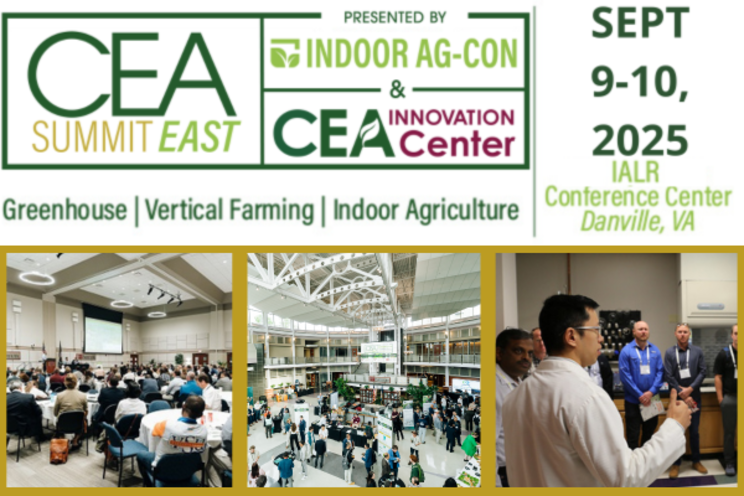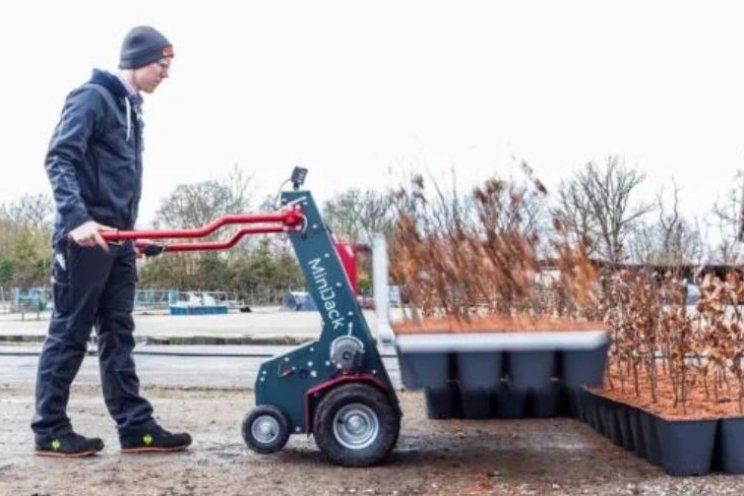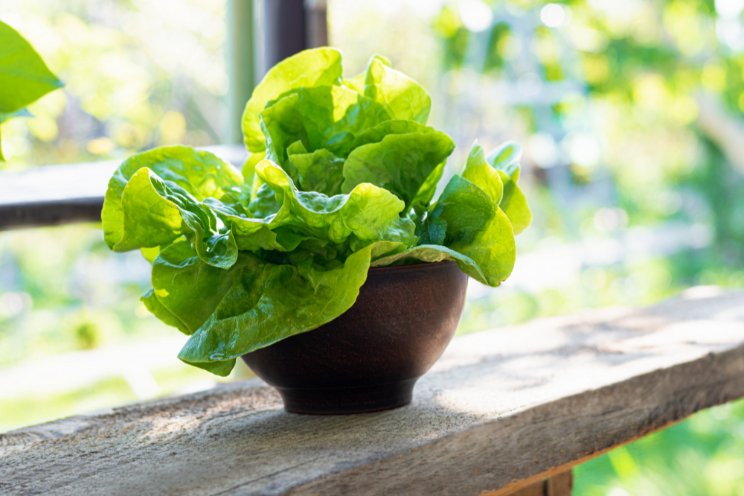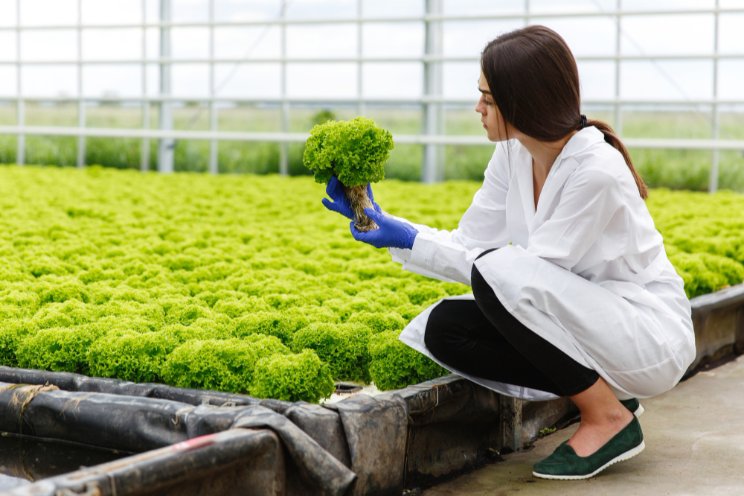Putting flavour back on the menu
Added on 29 March 2022
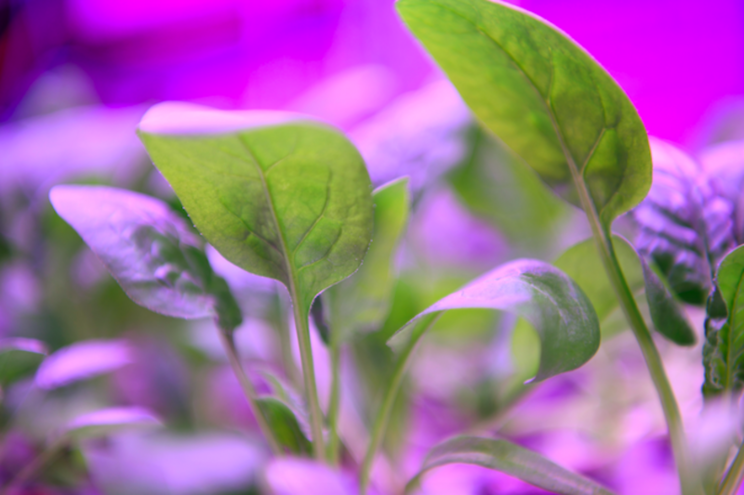
"Our aim is to grow fresh, affordable, great tasting fruit and vegetables for Britain's hard-pressed families, indoors, in a fully controlled environment, in a way that minimises damage to the environment, using the technology of the future." Jamie Burrows, CEO of Vertical Future
UK based Vertical Future, one of the world's most innovative CEA (Controlled Environment Agriculture) technology and research companies is leading a project that has been called a 'game-changer' for UK consumer and retailers alike, potentially putting more flavour on the consumer's plate, at less cost.
Scientists at Vertical Future are looking at the history of agriculture and investigating how, by growing heritage spinach seeds indoors, they could potentially help to protect the food of the future, improving both the flavour and quality. The CEA Heirloom Optimisation & Pathogen Control for Seeds 'CHOPS' project has identified heirloom varieties of spinach, such as the Viroflay Spinach from 1600s, whose leaves can grow up to 20cm, that could potentially thrive within CEA facilities. The project is supported by Innovate UK.
Last month Vertical Future announced a funding round of Ł21m, the largest ever Series A raise in Europe in the sector that would in part, enable the company to further expand its innovative Research & Development capabilities.
Most modern seeds have been extensively bred over the past hundred years for conventional agriculture, to be resistant to air and soil-born disease, thereby reducing crop loss for farmers. As such, many heirloom seeds have fallen out of favour with growers, despite often being better in both taste and yield. Project partner Ralph Weir, CEO of non-toxic seed sterilisation specialists Zayndu says, "we're standing plant breeding on its head. Instead of focusing on disease resistance, breeders can get back to thinking about flavour."
With CEA (or vertical farms) crops (currently salads, soft fruits, selected vegetables, herbs and varieties used for pharma industry) are grown indoors in vertical stacks. These soilless systems are fed either hydroponically or aeroponically with nutrient-rich water. Light is provided by high-tech LED lighting while robotic interface from seed to harvest allows minimal human interaction. These features create very clean growing environments removing the need for agro-chemicals to keep crops safe and healthy. With vertical farms, these disease resistant traits are no longer a high priority and so scientists can select varieties that have better characteristics such as being higher yielding or more nutrient dense. Dr Michael Gifford of NIAB believes the CEA project created by Vertical Future can potentially "bring these varieties back to people's plates, in a sustainable way."
The other important aspect of the CHOPS project will be for the teams at Vertical Future and Zayndu to scale up and develop a non-chemical seed pre-treatment method, using only air and electricity to kill any fungi or bacteria on the seeds. Zayndu use cold-plasma technology to sterilise seeds, reducing pathogen contamination and optimising yield, enabling a more nutritious, vertically farmed crop to be grown that will be free from threat of disease and the use of agro-chemicals.
Dr Jen Bromley, Chief Research Officer (CRO) at Vertical Future says, "currently it is still uneconomical to produce seeds in CEA facilities and so these are produced outside. The result is that the outer shell of the seed is now the main source of disease that enters a CEA production. When a disease takes hold in CEA, it can be devastating as the conditions that a plant thrives in, are the same as those a fungus or bacteria will."
Ralph Weir, Zayndu CEO says, "If disease tolerance comes at the expense of taste, shouldn't we eliminate the disease rather than risk growing plants that taste like cardboard? That is the promise of this program; kill pathogens on the seeds before they come into the controlled environment. We're excited to be working with Vertical Future and NIAB, both leaders in their field, to deliver a godsend for the food consumer."
The teams involved with CHOPS believe this development will also be a game-changer for the global CEA industry, as they will be creating technologies and protocols for CEA seed sterilisation worldwide and also defining trusted methodologies for a High Health seed assurance scheme for the CEA industry as a whole.
The trial, if successful, will have a huge impact on UK food security as well as pushing the UK to the forefront of the global CEA industry. The EU CEA industry is growing at a rate of 24.6% and is moving growing crops for consumption away from fields to tech-led indoor vertical farms. Growing food indoors, close to the point of consumption often within population centres, significantly reduces food miles, minimising transport emissions. It also raises consumer awareness of the realities of global agriculture and the growing pressures on our food production and supply chains.
Dr Jen Bromley continues: "Trials such as CHOPS and increasing investment in vertical farming will play a pivotal role in bringing vertical farming to the forefront of global CEA industry and will have a huge impact on UK food. Vertical farming is a young but growing sector and so finding ways to protect yields, reduce agrochemical use and improve the quality of produce will be critical to its continued growth."
Linkedin: https://www.linkedin.com/company/10994561/
Instagram: @vertical_future
Source: HortiBiz
More news


